Racism and Smoking: A Pilot Study of Aboriginal Adults 20-25 in Sydney
VerifiedAdded on 2023/06/04
|32
|2223
|187
Practical Assignment
AI Summary
This assignment presents a pilot study exploring the association between racism and smoking rates among Aboriginal and Torres Strait Islander adults aged 20-25 years in Sydney. The study aims to understand how racism impacts smoking behavior within this population. The research objectives include identifying Aboriginal and Torres Strait Islander adult smokers in the specified age group in Sydney, understanding their experiences with racism, exploring racial discrimination and smoking, and determining if a relationship exists between racism and smoking rates. The methodology involves an interview guide with demographic variables and questions designed to elicit information on participants' perceptions of racism, experiences with discrimination, smoking habits, and the perceived influence of racism on their smoking behavior. Feedback from interviewees is incorporated to assess the relevance and effectiveness of the questions. The pilot study identifies limitations such as gender bias and differing perceptions of the connection between racism and smoking, leading to the conclusion that more targeted research is needed within the selected population to effectively interpret the impact of racism on smoking.
1 out of 32
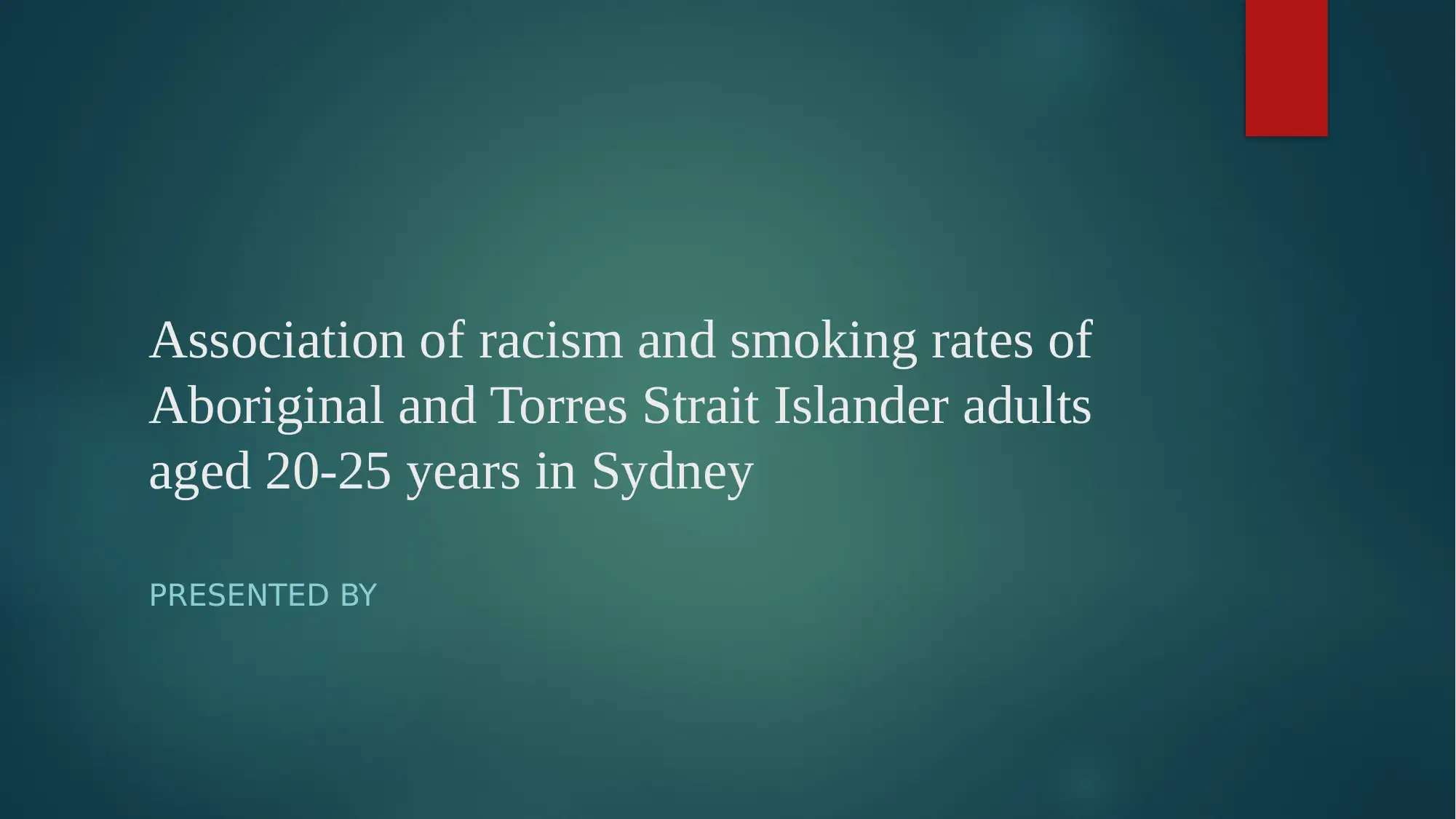
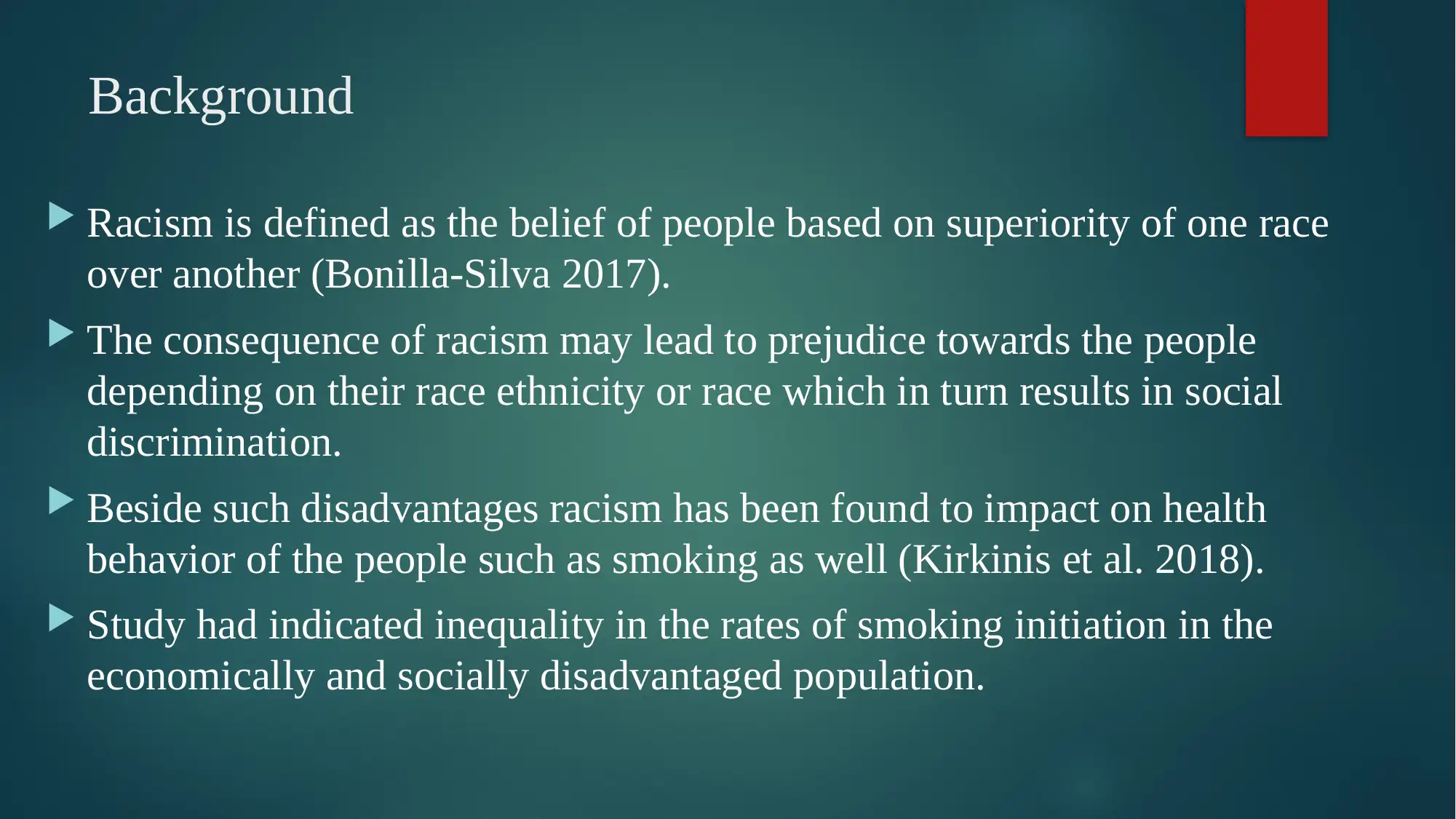
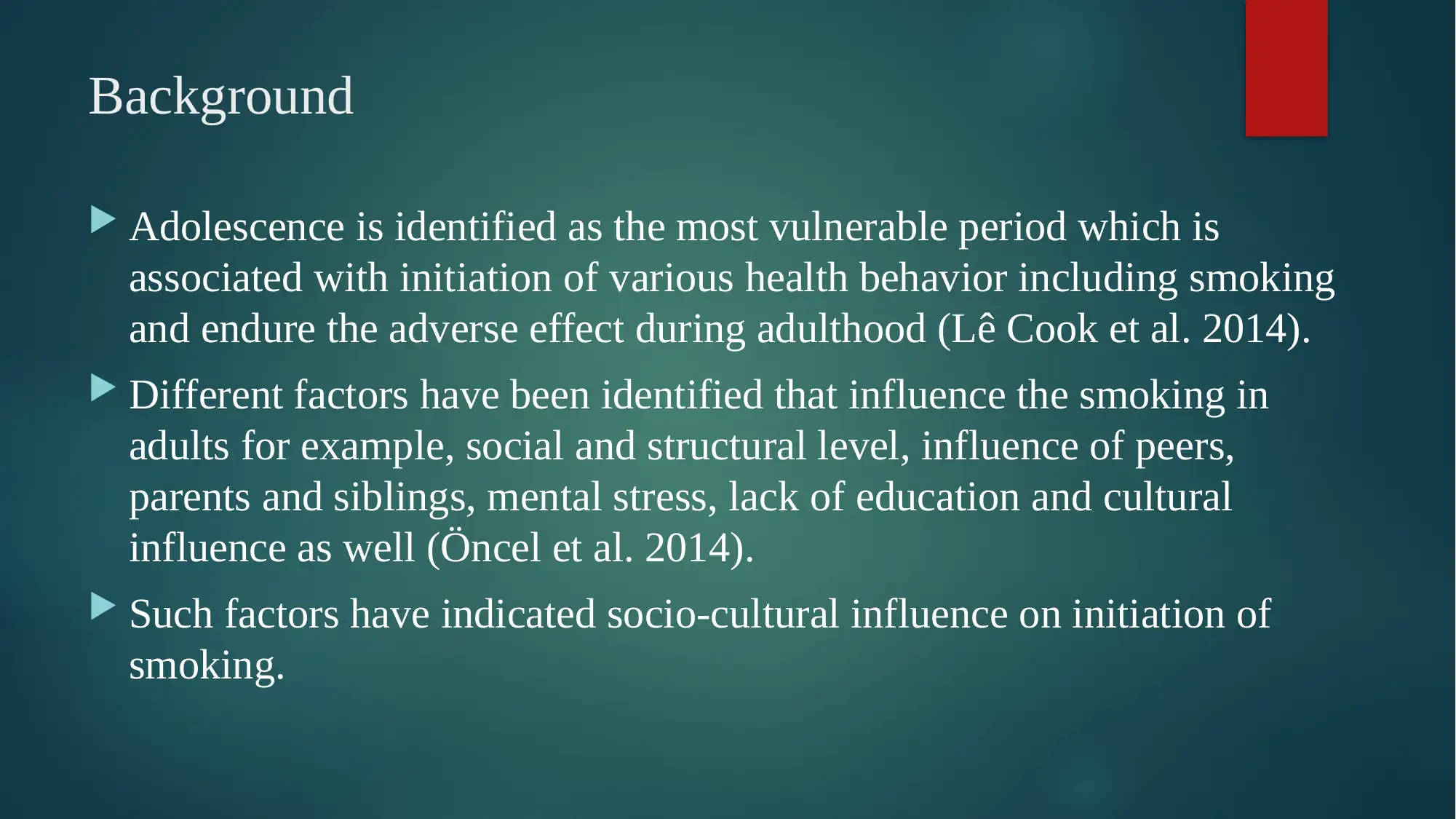

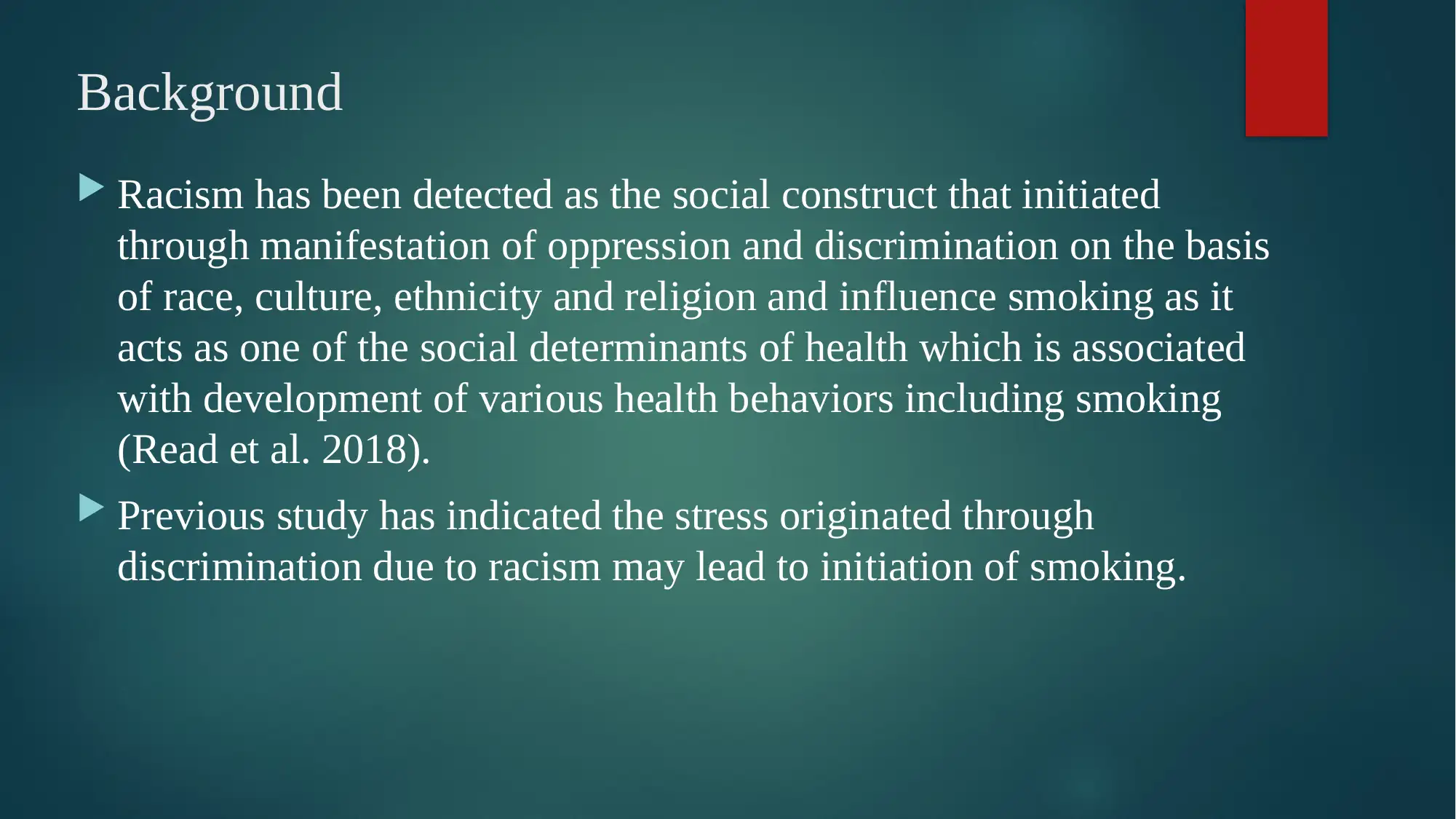
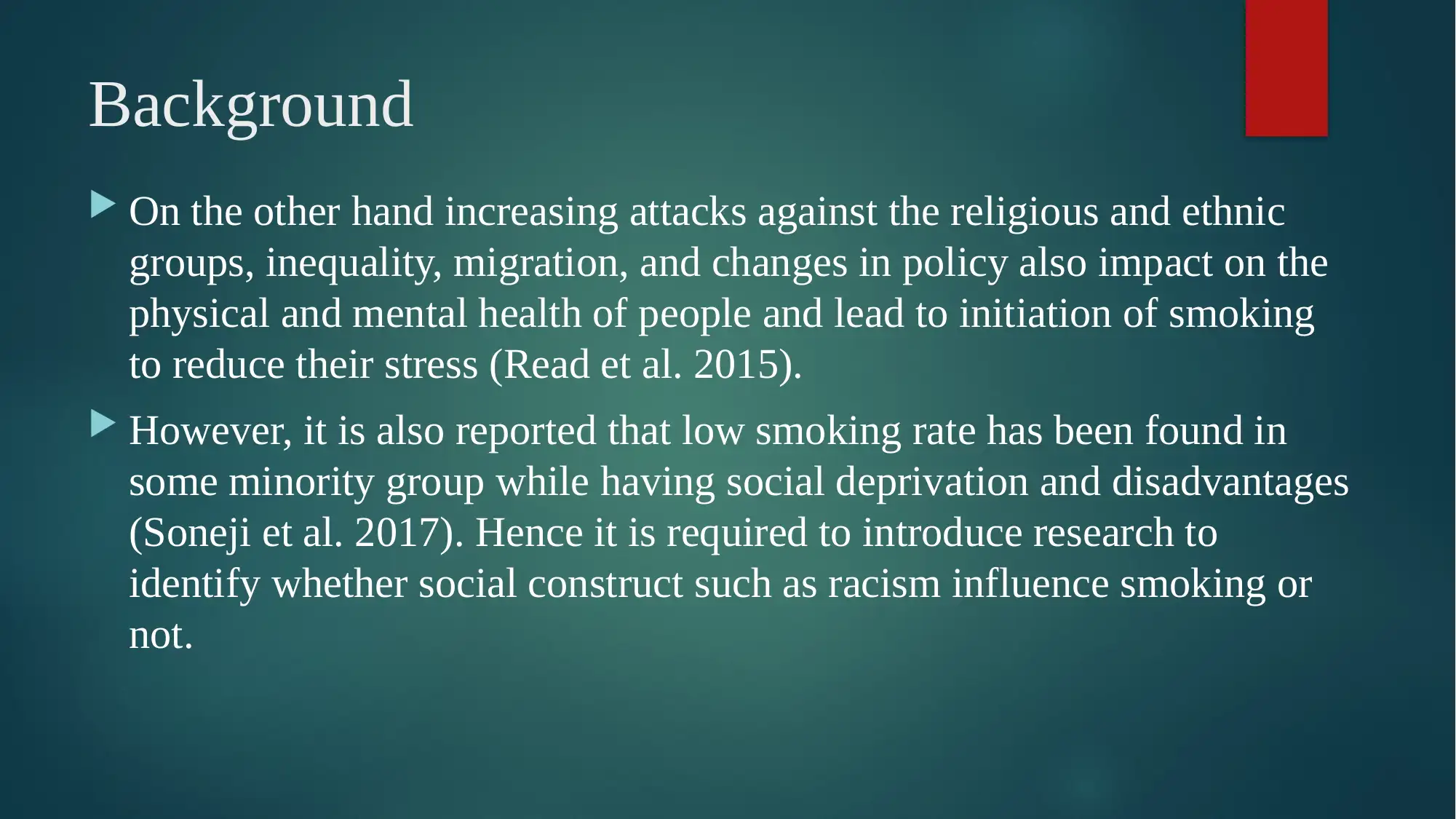
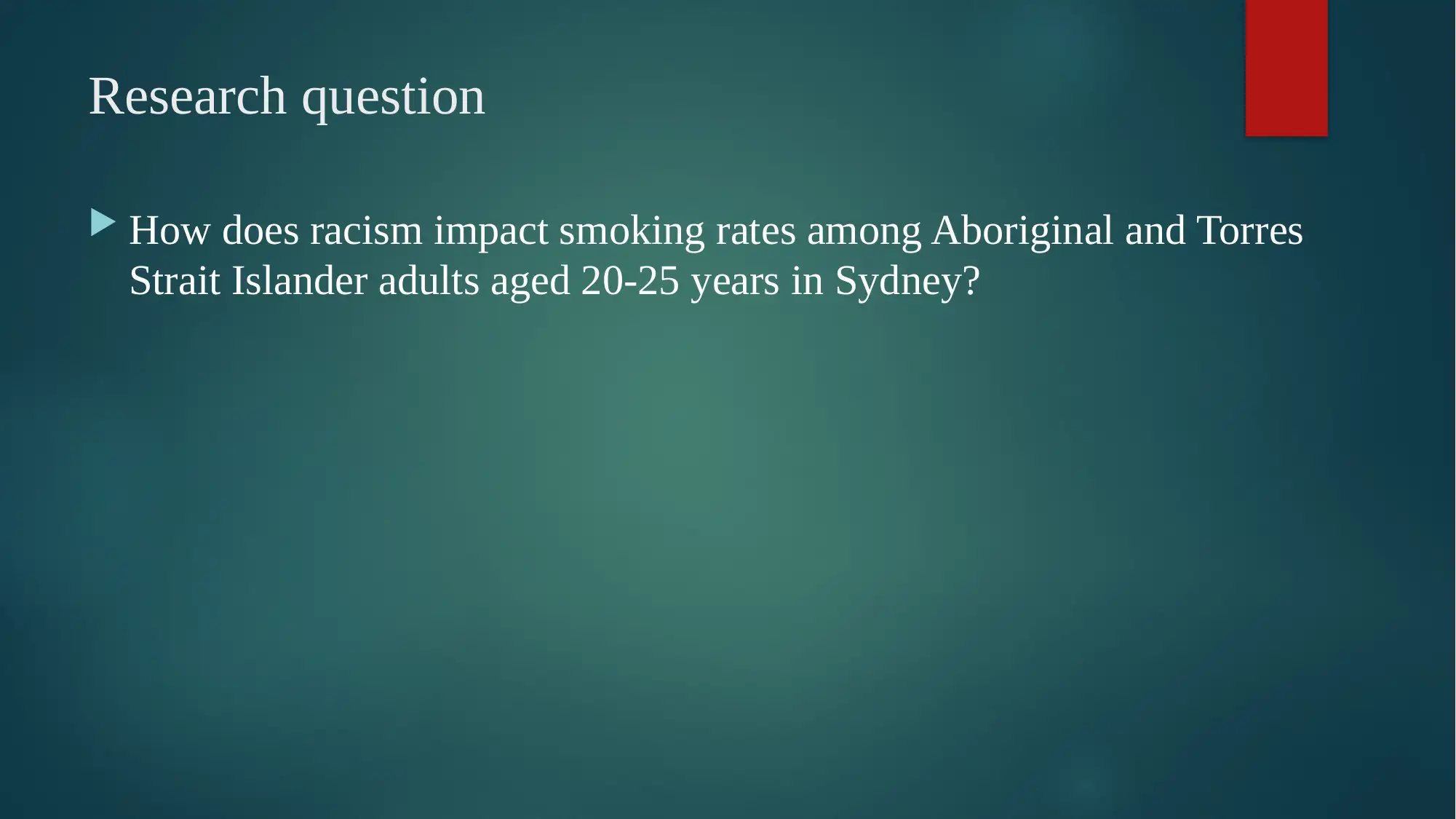
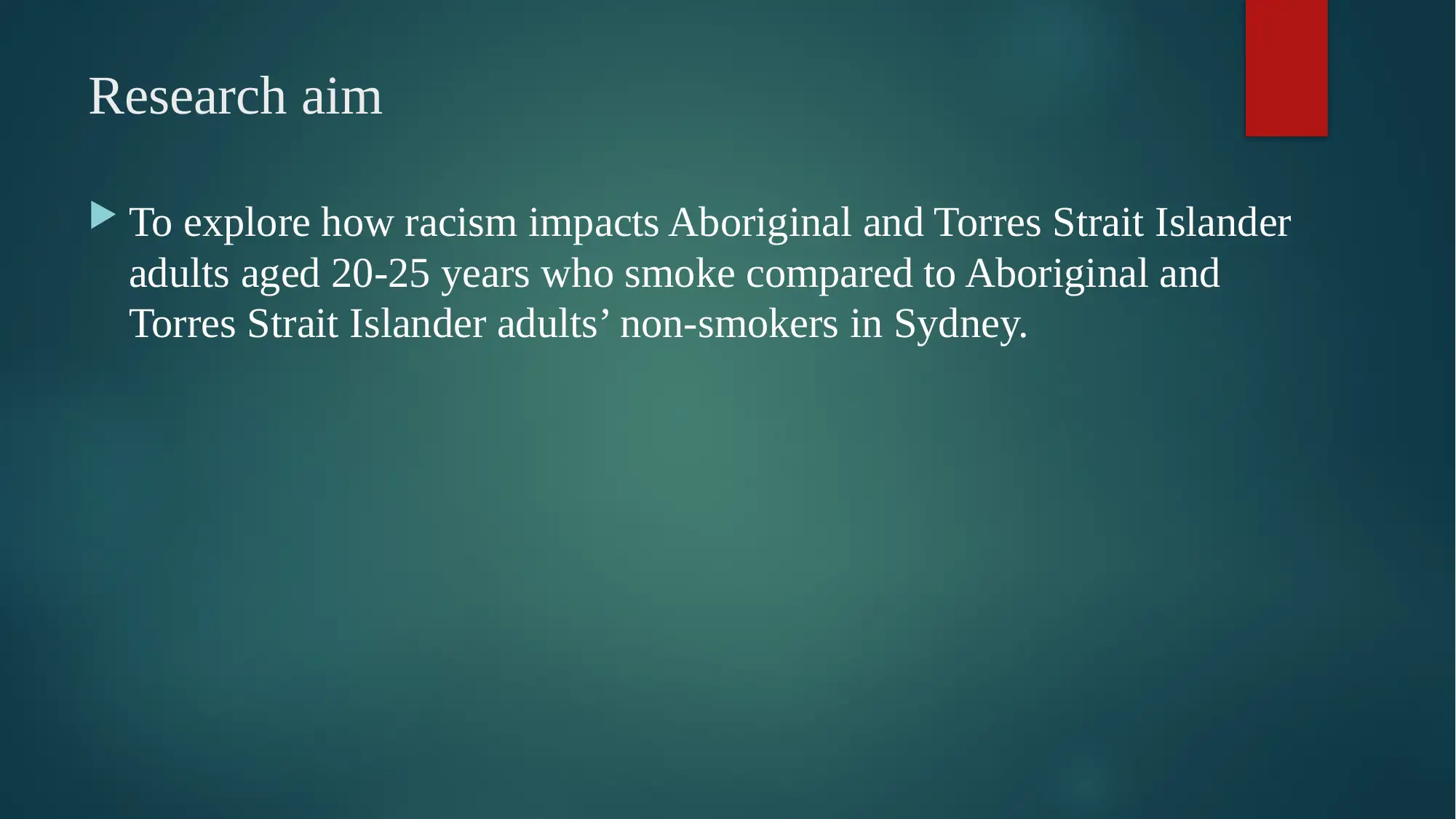
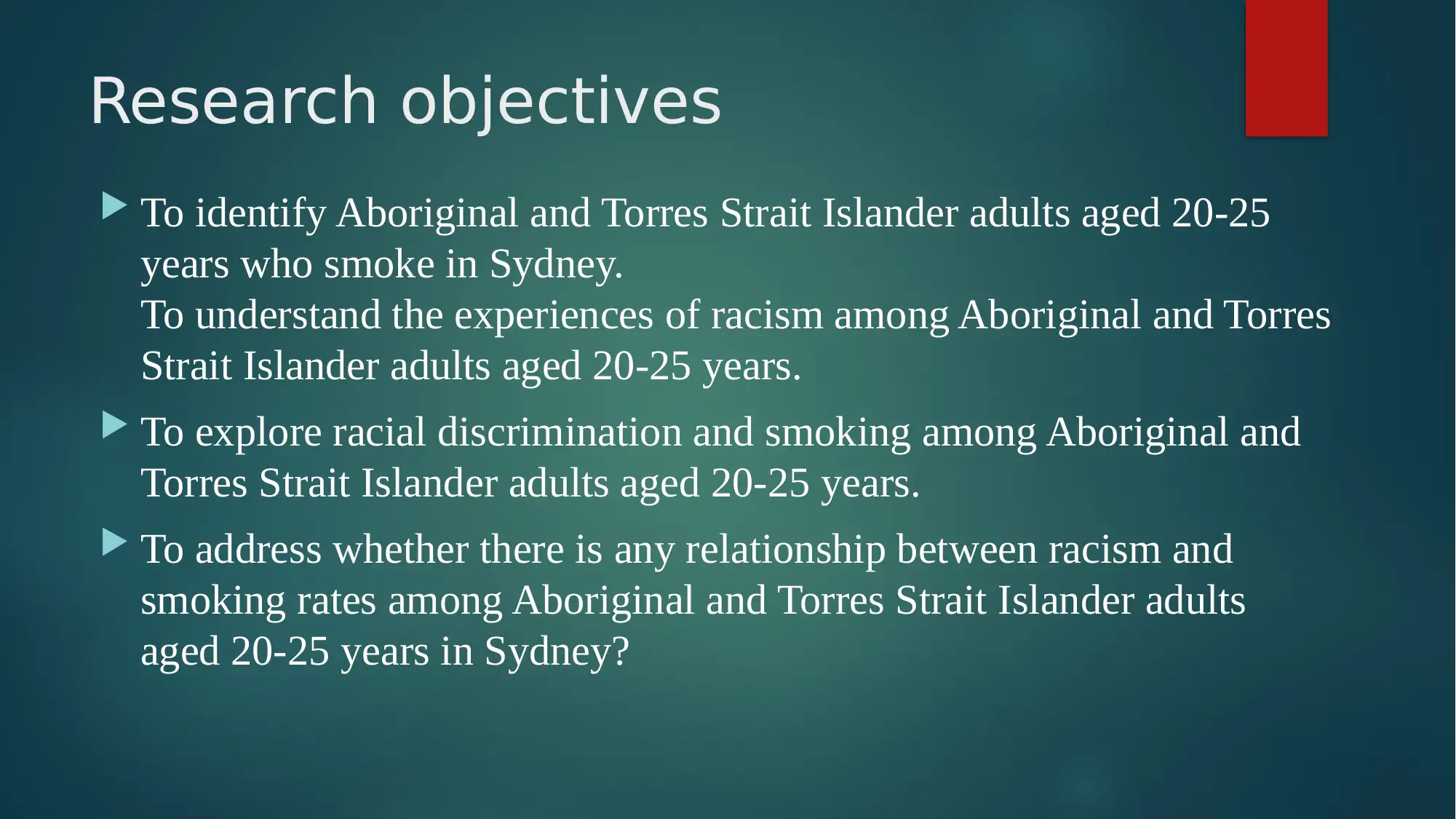
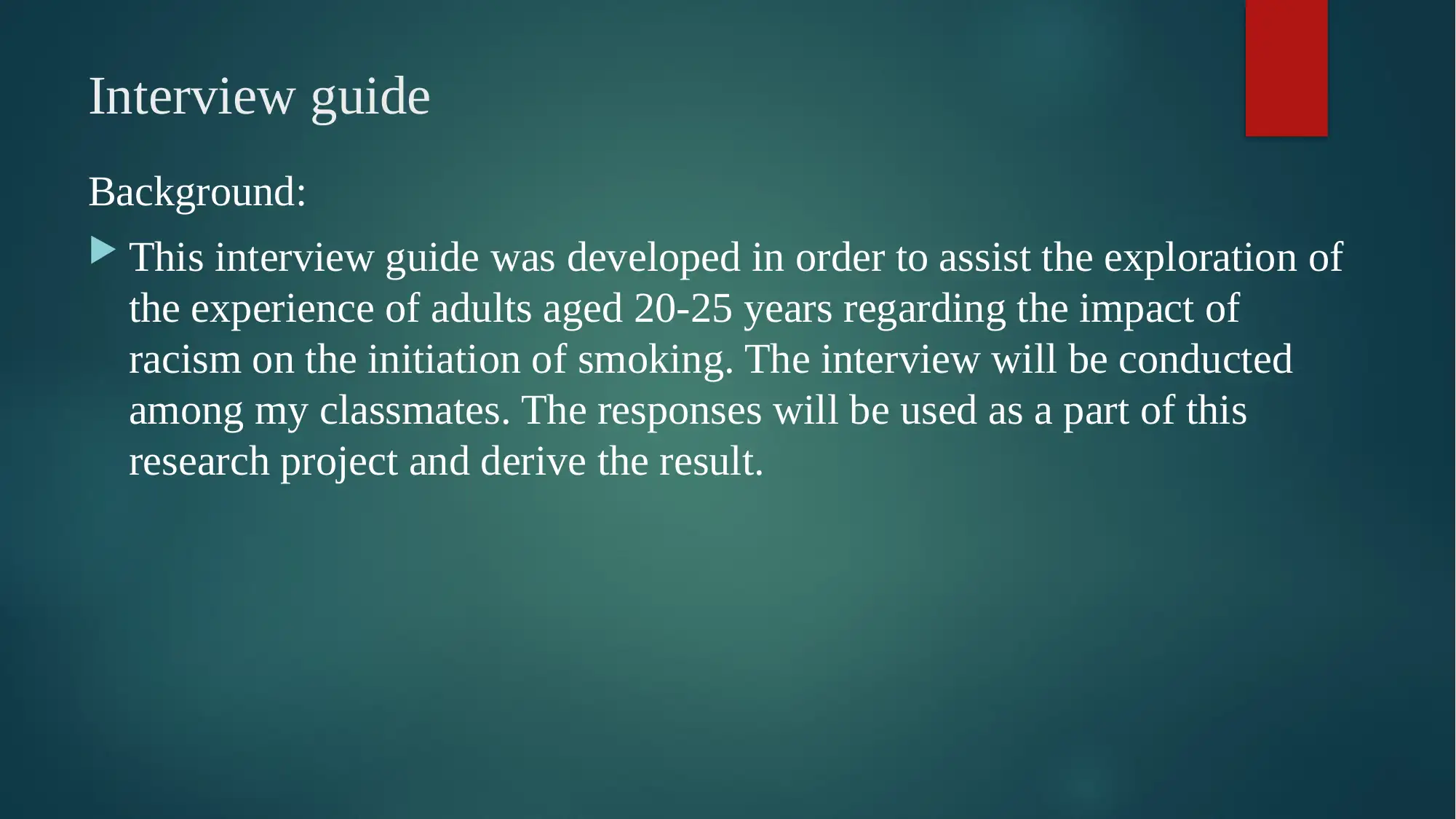
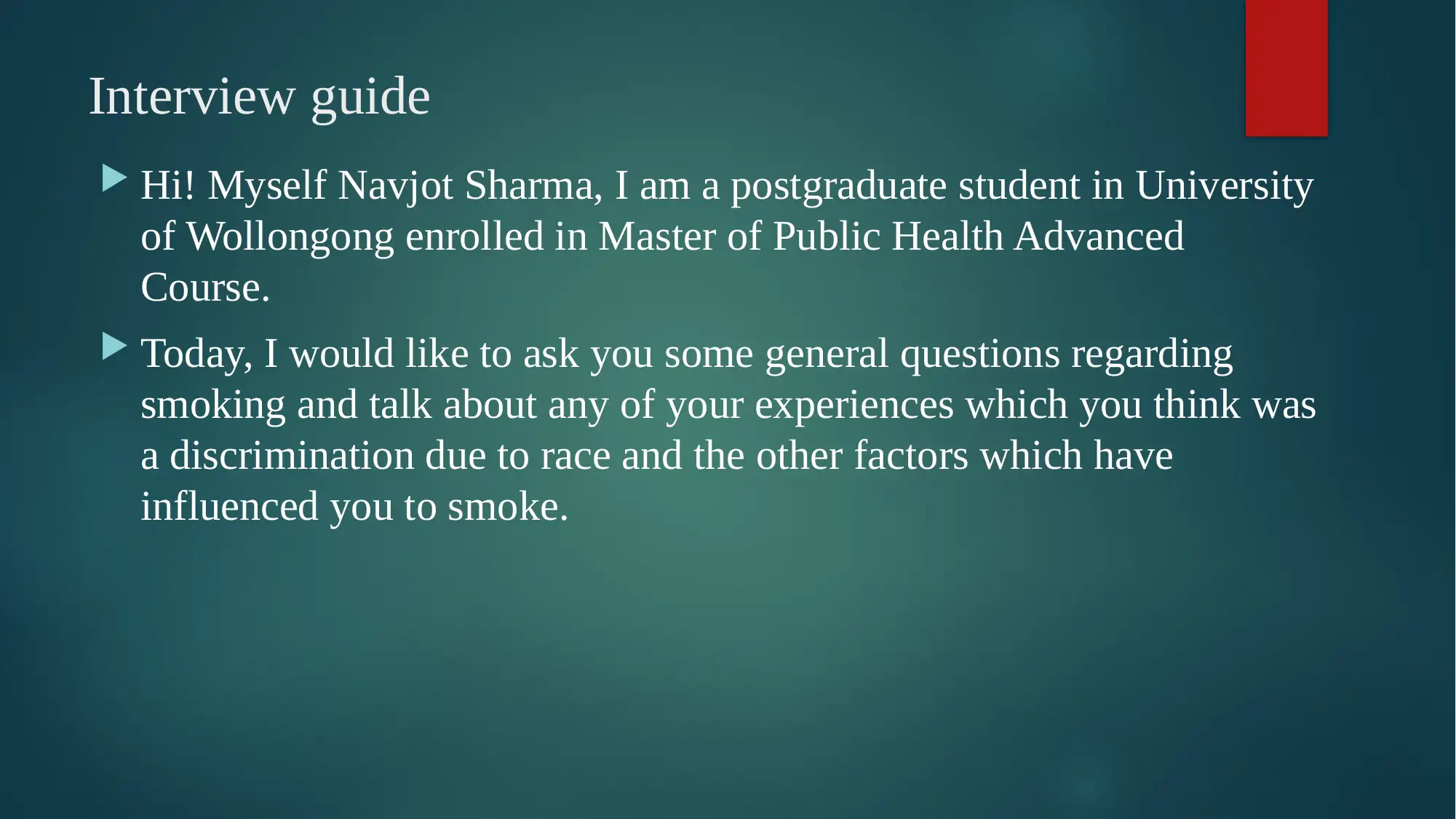
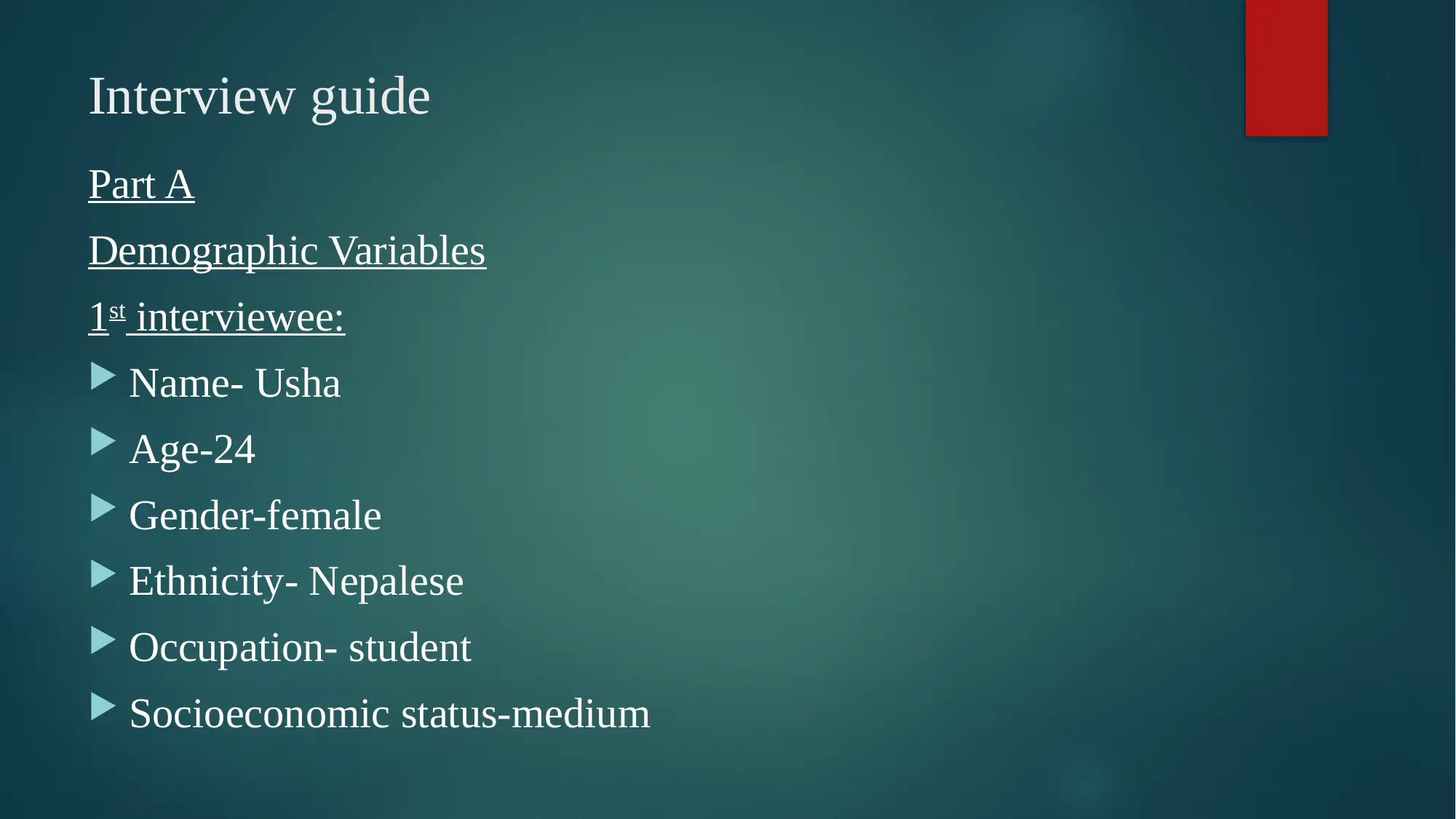
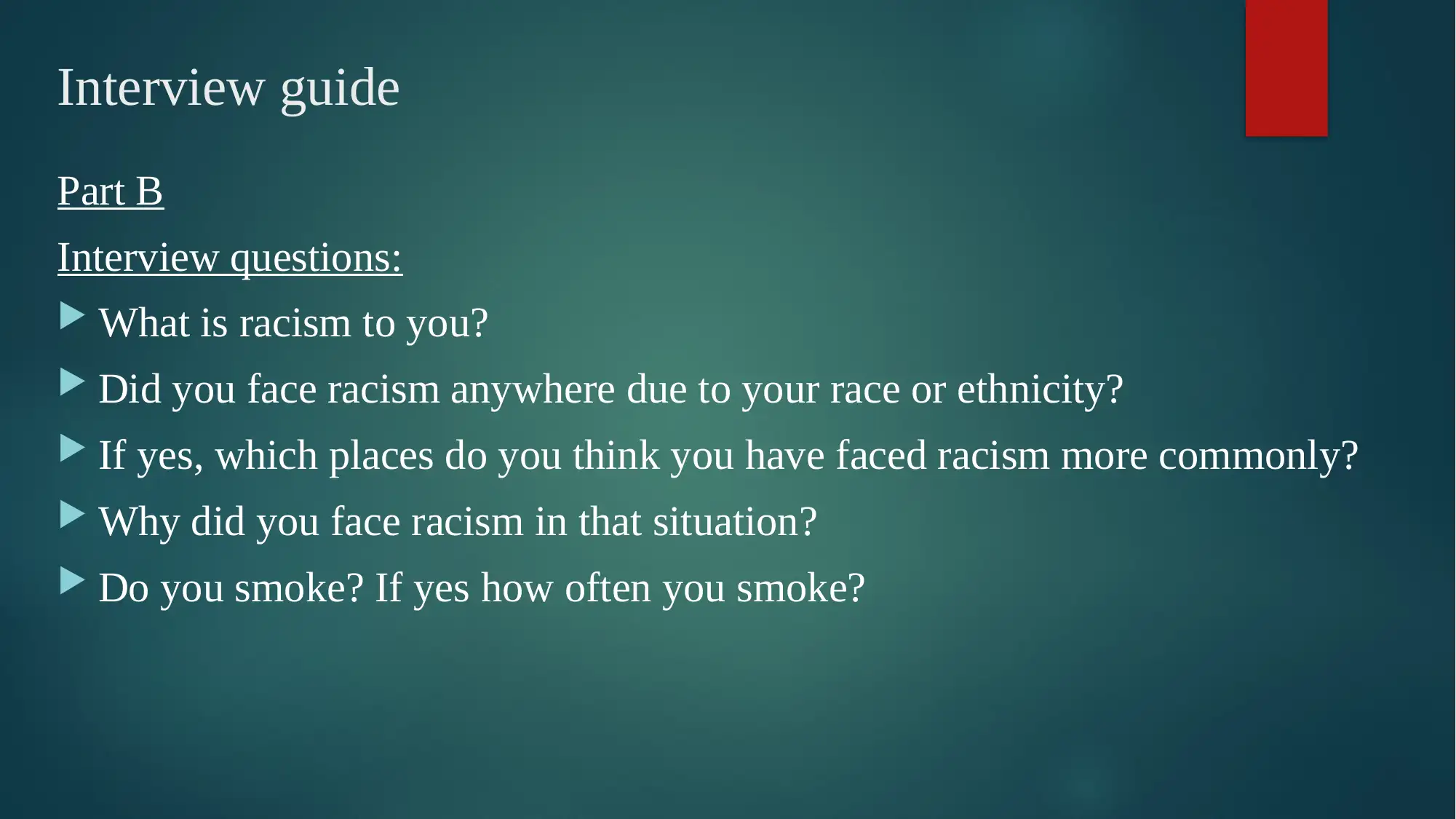






![[object Object]](/_next/static/media/star-bottom.7253800d.svg)